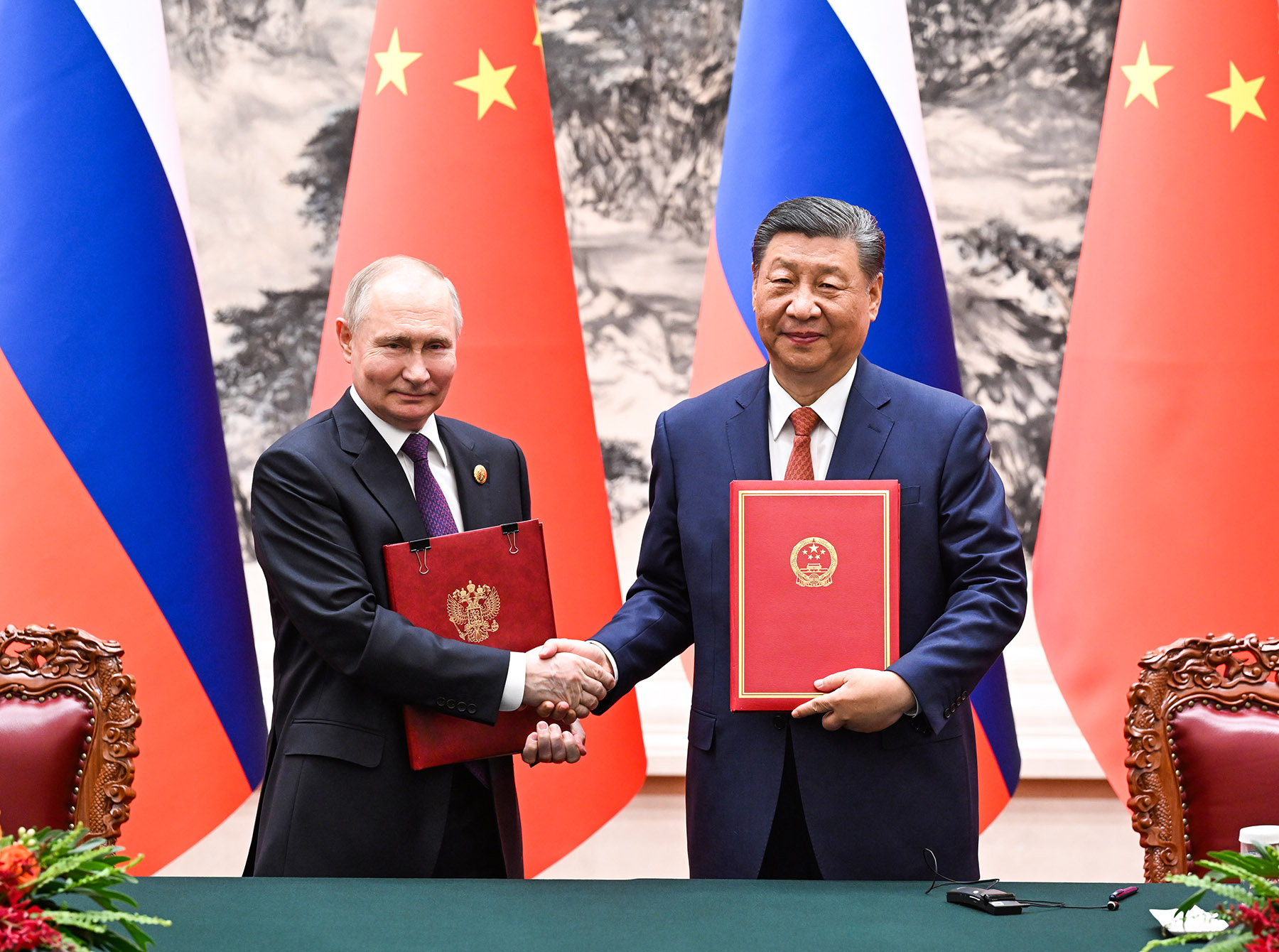Xi, Putin agree to bolster strategic partnership, call for political settlement of hot spot issues

Beijing and Moscow pledged to intensify their comprehensive strategic partnership of coordination for the new era as President Xi Jinping and Russian President Vladimir Putin signed a joint statement in Beijing on May 16 highlighting the countries’ commitment to enhancing their bilateral ties.
The two countries also agreed that a political settlement of the Ukraine crisis is the right way out of the conflict.
Putin arrived in Beijing on May 16 for a two-day state visit to China, his first foreign trip since being sworn in for a fifth term as Russian president on May 7. Xi held a grand welcoming ceremony for Putin before they held official talks at the Great Hall of the People.
During their talks, Xi said the steady development of China-Russia relations is not only in the fundamental interests of the two countries and two peoples, but is also conducive to regional and global peace, stability and prosperity.
On the new journey, China is ready to work with Russia to stay each other’s good neighbor, good friend and good partner, each trusting the other, and to continue to consolidate the lasting friendship between the two peoples, jointly pursue their respective national development and revitalization, and uphold fairness and justice in the world, he said.
Noting that China and Russia are permanent members of the United Nations Security Council and major emerging markets, Xi said that it is the shared strategic choice of both countries to deepen strategic coordination, expand mutually beneficial cooperation, and follow the general historical trend of multipolarity in the world and economic globalization.
This year marks the 75th anniversary of diplomatic ties between China and Russia. Xi called on the two countries to take the anniversary as a new starting point, further synergize their development strategies, and continue to enrich bilateral cooperation to bring greater benefits to the two countries and their peoples.
Putin said the development of Russia-China relations is not an expediency, is not directed against any third party, and is conducive to global strategic stability.
Russia is willing to continue expanding bilateral cooperation with China, closely communicate and collaborate within frameworks such as the United Nations, BRICS, and the Shanghai Cooperation Organization, and promote the establishment of a more just and equitable international order, he said.
The two presidents witnessed the signing of multiple cooperation documents in fields such as trade, the economy, nature conservation, inspection and quarantine, and the media.
While jointly meeting the media with Putin following their talks, Xi said the Sino-Russian relationship has become a fine example of a new type of international relations and good-neighborly relations between two major countries.
Both he and Putin are of the view that it is urgent to solve the Palestine-Israel conflict, Xi said, adding that UN resolutions must be earnestly implemented and the Palestinian question must be solved on the basis of the two-state solution.
Joint statement issued following the two presidents’ meeting said that the two countries are willing to support each other on core issues such as sovereignty, territorial integrity, security, and development.
Both sides agreed to continue expanding bilateral trade, and enhance the share of their respective currencies in bilateral trade, financing, and other economic activities, the statement said.
Both sides expressed serious concerns about the United States’ attempts to disrupt strategic stability in order to maintain its absolute military advantage, including the construction of a global missile defense system and the deployment of missile defense systems around the world and in space.
Beijing and Moscow called on relevant countries and organizations to stop adopting confrontational policies, stop interfering in the internal affairs of other countries, stop disrupting existing security architectures, stop creating “small circles”, stop exacerbating regional tensions, and stop promoting bloc confrontations, the statement said.
The two sides oppose the formation of closed and exclusive group structures in Asia and the Pacific, especially military alliances targeting any third party, it said.
Both sides pointed out that the US “Indo-Pacific strategy” and NATO’s disruptive moves in the Asia-Pacific region have a negative impact on regional peace and stability, and they expressed serious concerns about the consequences of the AUKUS trilateral security partnership among the US, the United Kingdom, and Australia on strategic stability in the Asia-Pacific region, the statement said.


